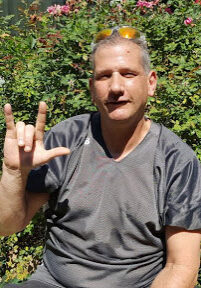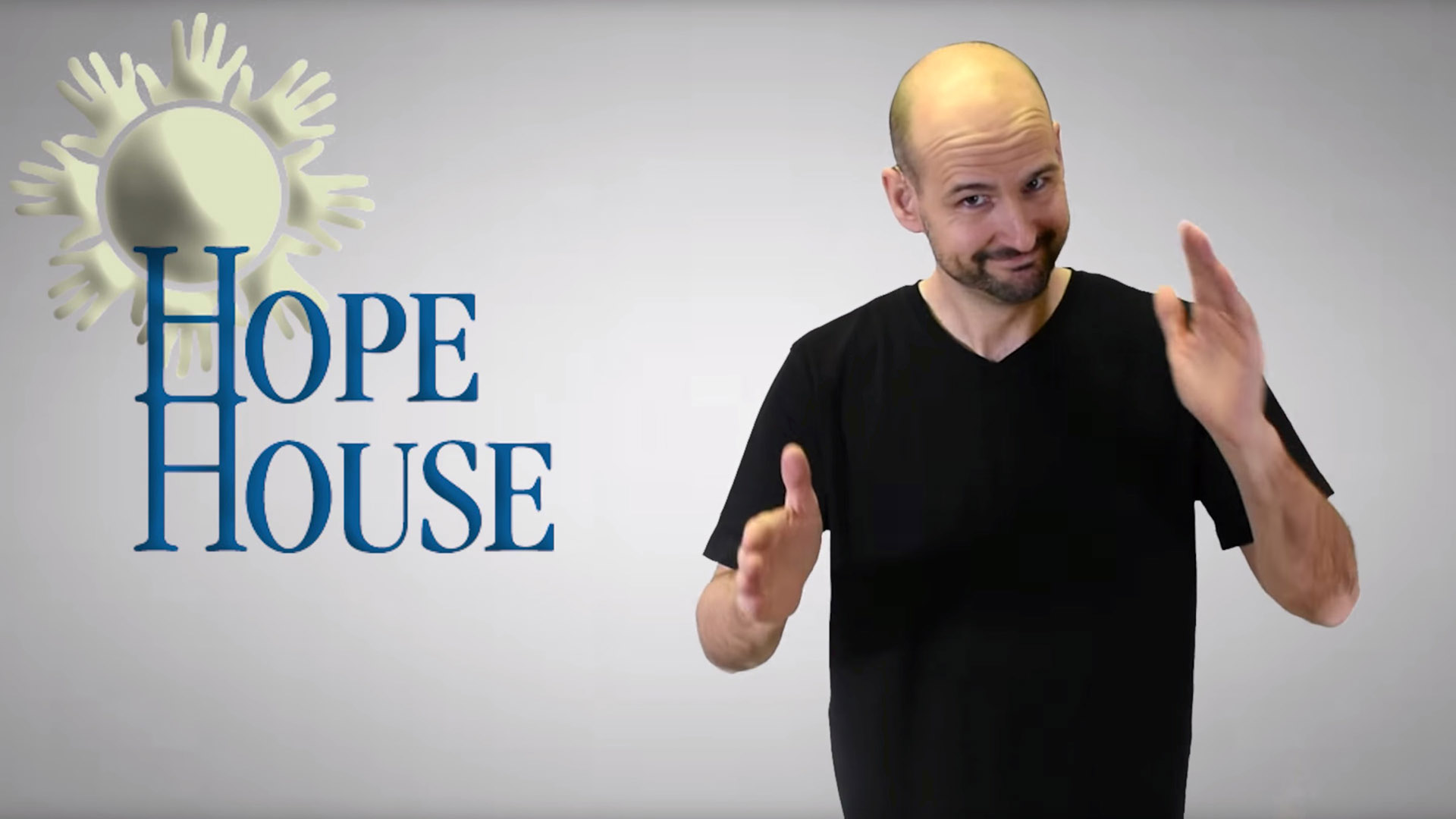Program Overview
The DBR program offers culturally and linguistically competent therapeutic services at Hope House in downtown Atlanta, which is CaringWorks’ residential facility that provides quality housing and structured support to adult men who have experienced homelessness and are in recovery from substance addiction.
Hope House offers not only a safe and clean environment, but it is a holistic environment free of cultural or language barriers. Services include housing for up to two years, development of an individualized plan, care coordination, individual counseling, and linkage to services such as healthcare and job training.
DBR services are provided by deaf and hard-of-hearing staff members who are not only fluent in American Sign Language (ASL) and competent in Deaf culture, but are also trained to provide evidence-based practices to empower deaf and hard-of-hearing men to learn independent life skills and capitalize on their strengths to address mental health concerns and maintain sobriety.
Services that are offered include:
Hope House also offers outpatient services to both hearing members and deaf and hard-of-hearing members.
Impact
The DBR program is designed to address specific challenges that individuals in the Deaf community may face when accessing care and services.
Common challenges include:
Deaf individuals are nearly 7 times more likely to have inadequate health literacy when compared to their hearing peers. Inadequate health literacy is a significant issue within the Deaf community. Using healthcare navigators who are fluent in ASL and competent in Deaf culture is an effective way to increase health literacy for deaf and hard-of-hearing individuals.
Changed Lives
Let some of our clients tell you about their experience.
Program: Hope House/Deaf Bridges to Recovery Program
Donald B.
Donald came to the CaringWorks in 2013. He was an active alcoholic and drug addict. Abuse as a young child had led him to marijuana and, after high school, to cocaine and other drugs. He went to college at Gallaudet University and then the National Technical Institute for the Deaf (NTID) for engineering. His addiction became so powerful after he left that he lost numerous jobs, spiraling into chronic homelessness on and off for many years. He was in and out of different programs because he just wasn’t ready. But he found a home and sobriety at CaringWorks.
“I heard good things about the counseling and that there were deaf people in this class teaching and working in the class. That made a big difference for me as opposed to having an interpreter all the time," Donald said. "The program as a whole has been valuable. This program teaches us that when there’s a problem that comes up, you can learn to fix it.”
When asked about the future, Donald said, “I feel happy, like a kid starting all over again and I’m excited for the future. Maybe in the future I’d like to have a nice home, a good car, a good relationship, and good health.”


Program Eligibility
To be eligible for the program, you must meet the following requirements:
- Need substance abuse treatment and recovery support
- Be deaf or hard of hearing, deaf-blind, deaf plus, late-deafened, etc.
- Age 18 years old or above
- Male
- Low-income
- Homeless
While Georgia residents will be given priority, Hope House accepts and welcomes people from any other state. Prospective members will meet with our team for pre-screening and assessment to determine program eligibility.
Requirements for Prospective Members
Once a prospective member is determined to be a good candidate for our program, we will ask them to bring the following documents for admission to the program:
- Homeless Verification Letter
- TB (Tuberculosis) and RPR (Rapid Plasma Reagin) verification (no more than 6 months old)
CaringWorks can offer support to get a homeless verification letter if necessary.
Hope House Services for
Deaf and Hard-of-Hearing Clients
Learn more about CaringWorks’ Hope House program for addiction treatment of deaf and hard-of-hearing men in Atlanta.

